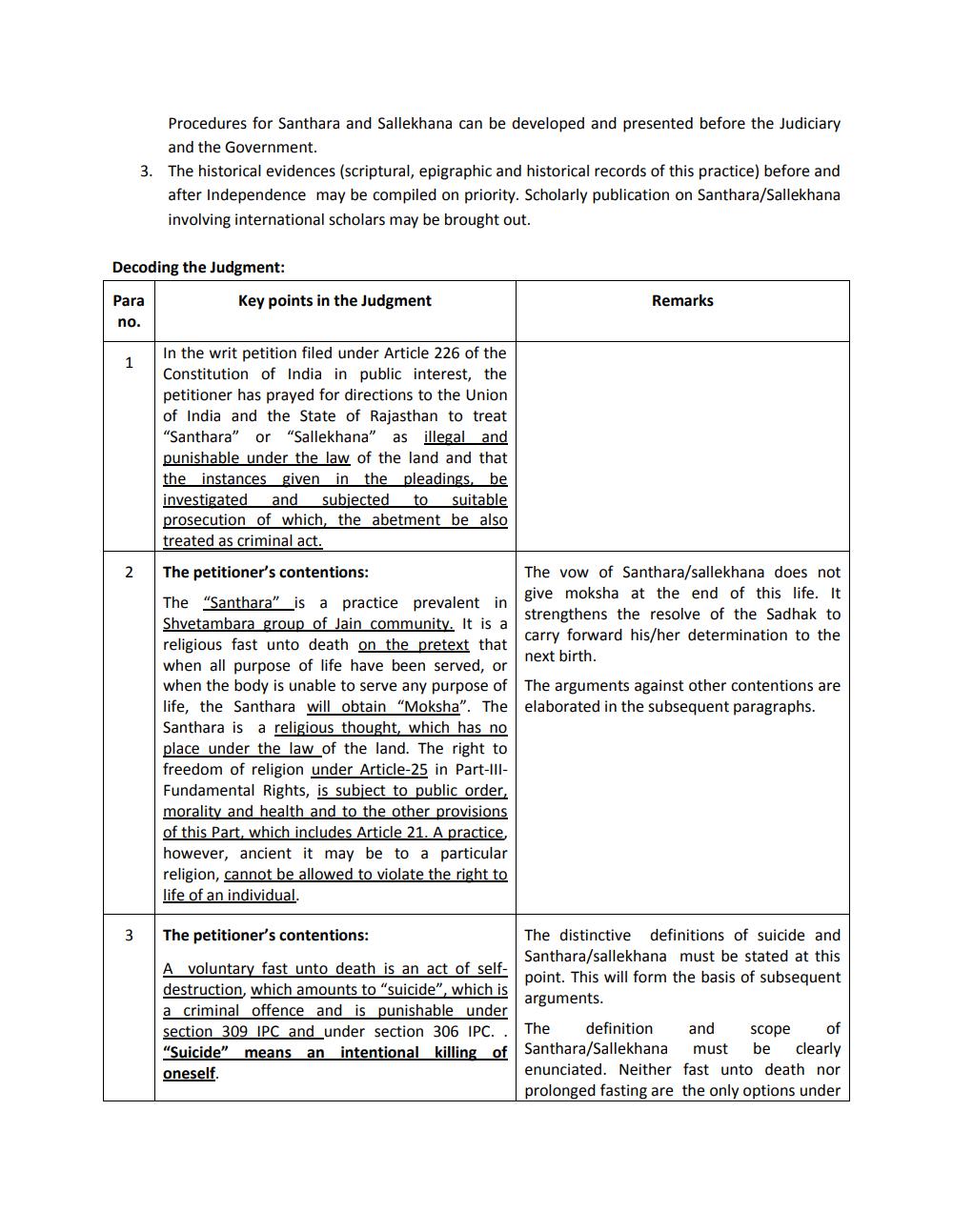Book Title: Decoding The Judgement on Sallekhana Santhara of The Rajasthan High Court Author(s): C Devkumar Jain Publisher: C Devkumar Jain View full book textPage 2
________________ Procedures for Santhara and Sallekhana can be developed and presented before the Judiciary and the Government. 3. The historical evidences (scriptural, epigraphic and historical records of this practice) before and after Independence may be compiled on priority. Scholarly publication on Santhara/Sallekhana involving international scholars may be brought out. Decoding the Judgment: Key points in the Judgment Remarks Para no. In the writ petition filed under Article 226 of the Constitution of India in public interest, the petitioner has prayed for directions to the Union of India and the State of Rajasthan to treat "Santhara" or "Sallekhana" as illegal and punishable under the law of the land and that the instances given in the pleadings, be investigated and subjected to suitable prosecution of which, the abetment be also treated as criminal act. The petitioner's contentions: The vow of Santhara/sallekhana does not give moksha at the end of this life. It strengthens the resolve of the Sadhak to carry forward his/her determination to the next birth. The arguments against other contentions are elaborated in the subsequent paragraphs. The "Santhara" is a practice prevalent in Shvetambara group of Jain community. It is a religious fast unto death on the pretext that when all purpose of life have been served, or when the body is unable to serve any purpose of life, the Santhara will obtain "Moksha". The Santhara is a religious thought, which has no place under the law of the land. The right to freedom of religion under Article-25 in Part-IIIFundamental Rights, is subject to public order, morality and health and to the other provisions of this part, which includes Article 21. A practice, however, ancient it may be to a particular religion, cannot be allowed to violate the right to life of an individual. 3 The petitioner's contentions: A voluntary fast unto death is an act of selfdestruction, which amounts to "suicide", which is a criminal offence and is punishable under section 309 IPC and under section 306 IPC.. "Suicide" means an intentional killing of oneself The distinctive definitions of suicide and Santhara/sallekhana must be stated at this point. This will form the basis of subsequent arguments. The definition and scope of Santhara/Sallekhana must be clearly enunciated. Neither fast unto death nor prolonged fasting are the only options underPage Navigation
1 2 3 4 5 6 7 8 9 10 11 12 13 14 15 16 17 18 19 20 21 22 ... 25
